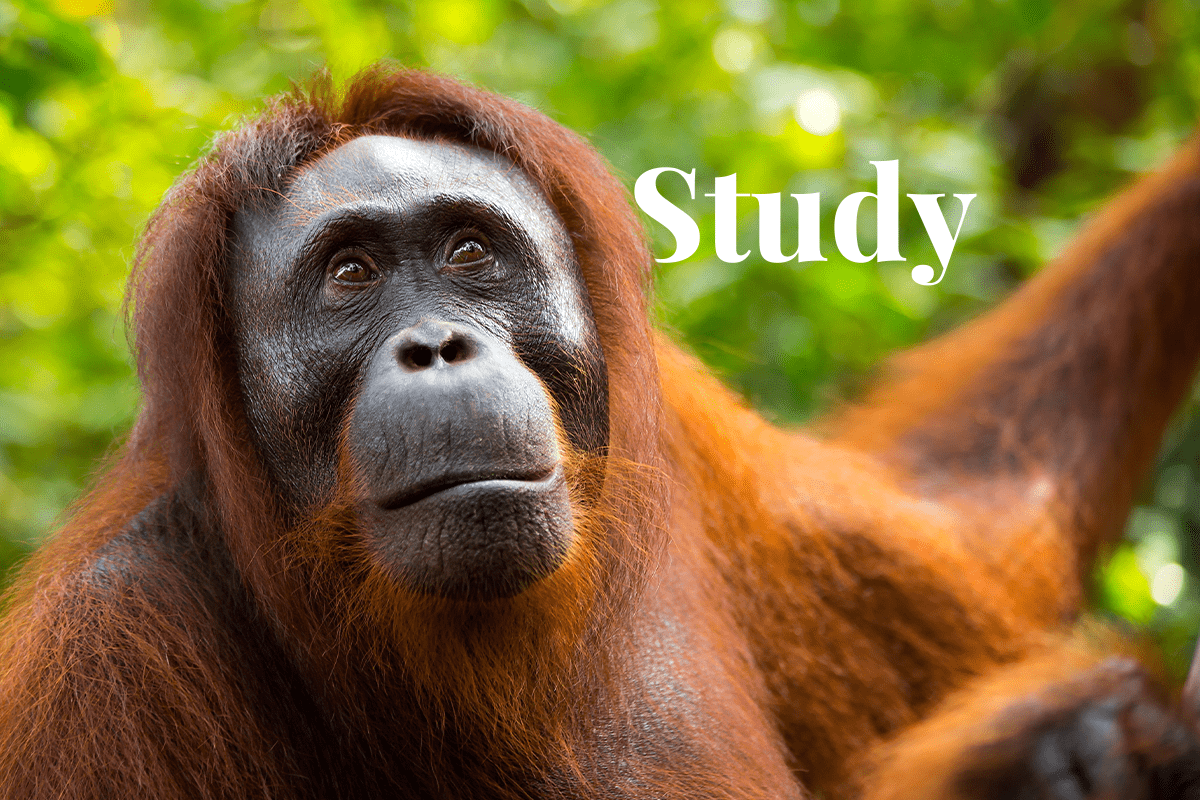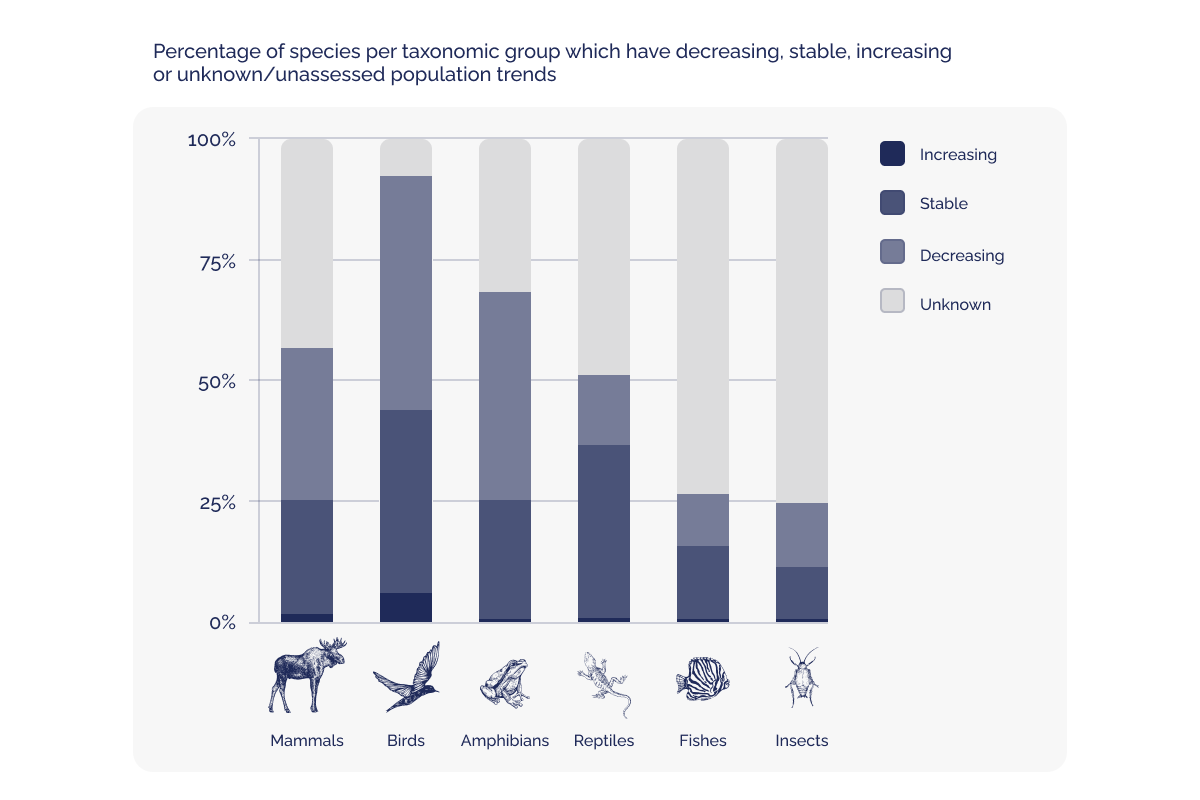According to groundbreaking research conducted by Queen's University Belfast (QUB), almost half of Earth's animal species are currently in decline. The study, led by PhD student Catherine Finn and Dr Daniel Pincheira-Donoso from the School of Biological Sciences at QUB, in collaboration with Dr Florencia Grattarola from the Czech University of Life Sciences, Prague, examined population densities of over 70,000 animals, making it the most comprehensive record to date.
 Wild Sumatran Orangutan in a jungle, Borneo, Indonesia.
Wild Sumatran Orangutan in a jungle, Borneo, Indonesia.
Biodiversity, the variety of all life forms on Earth, is crucial for the health and functioning of ecosystems. Biodiversity encompasses the diversity of species, genes, and ecosystems that interact and contribute to the stability of our planet. It provides numerous benefits, including ecosystem services such as clean air and water, crop pollination, climate regulation, and the provision of food and resources.
Read more: 10 Vital ecosystem services: sustaining life on Earth
The study's findings are alarming, revealing that 48% of species are currently experiencing population declines, while less than 3% are increasing. This decline in biodiversity is a matter of great concern as it disrupts the intricate web of life and leads in time to the loss of essential ecological functions and services. Additionally, biodiversity loss has cascading effects, impacting human wellbeing by increasing the risk of disease outbreaks, reducing resilience to environmental changes, and compromising food security.
 Source: https://onlinelibrary.wiley.com/doi/10.1111/brv.12974
Source: https://onlinelibrary.wiley.com/doi/10.1111/brv.12974
The research conducted by QUB serves as a stark reminder of the critical importance of biodiversity. The global erosion of biodiversity caused by human activities, particularly industrialisation, threatens the stability of nature as a whole. Therefore, urgent action is needed to protect and restore biodiversity, preserve habitats, and promote sustainable practices that support the health of ecosystems and ensure the wellbeing of present and future generations.
The study sheds light on the speed of species extinction, which is occurring between 100 and 1,000 times faster than expected by scientists, according to the Natural History Museum. This accelerated extinction rate has led many scientists to warn that humanity may be triggering the ‘sixth mass extinction’ on Earth.
In their study, the researchers from QUB adopted a different approach by analysing population trends. Their analysis revealed that the magnitude of the extinction crisis is far more severe than indicated by traditional measures. Surprisingly, they found that 33% of species classified as ‘safe’ by the International Union for Conservation of Nature (IUCN) are actually declining towards the risk of extinction.
Read more: The cost of preserving Earth’s ecosystems: a price worth paying
Dr Pincheira-Donoso emphasised that this new method offers a clearer and more alarming picture of the crisis than traditional approaches. The study serves as a wake-up call, urging immediate action to address the devastating impacts on nature, human health, and overall wellbeing caused by the current biodiversity crisis.
DGB Group is dedicated to protecting biodiversity through our large-scale nature-based initiatives. We focus on fostering resilient ecosystems through partnerships with visionary organisations and close collaboration with local authorities and communities. We have the tools to support nature in doing what it does best: making life better for everyone.
Join us on this journey for a better tomorrow




